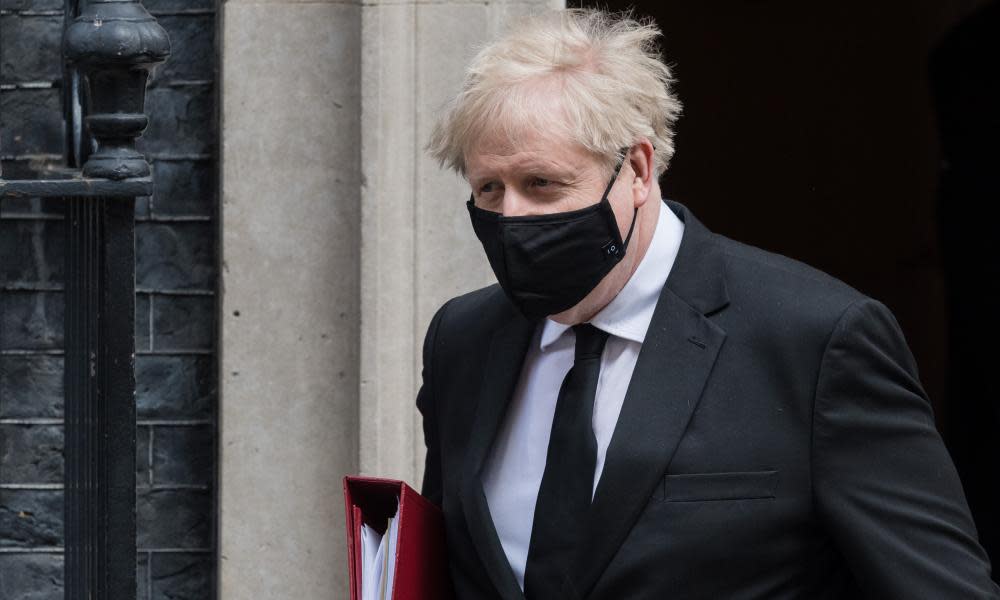Tories close ranks to block broader inquiry into Greensill scandal

Tory MPs have voted en masse to block a broader inquiry into the Greensill scandal as Labour claimed there was now evidence of sleaze at the heart of government.
The opposition day motion in the Commons, which would have created a cross-party committee of MPs to look into Greensill and wider issues of lobbying, was defeated by 357 votes to 262, after the government opposed the plan.
The Cabinet Office minister Chloe Smith told MPs that much of the planned work of the proposed Labour inquiry was already being done elsewhere, “sowing confusion” and risking duplication.
Ministers were not complacent about lobbying, Smith said, while also arguing that the information which had emerged about Greensill Capital “has done so in some part because the system in place is doing its job and ensuring the support of transparency and accountability”.
But speaking in the debate the Tory backbencher William Wragg said the Commons public administration and constitutional affairs committee, which he chairs, could also examine the affair, raising the prospect of a more thorough investigation of lobbying issues taking place anyway.
“Rest assured the committee is and will be giving these matters proper consideration,” Wragg said, referring to the fictional police anti-corruption unit in the BBC series Line of Duty by calling the committee “the AC-12 of Whitehall”.
Opening the debate, Labour’s shadow Cabinet Office minister, Rachel Reeves, said the more limited government inquiry, to be led by corporate lawyer and business department adviser Nigel Boardman, was “wholly inadequate, and deliberately so”.
Reeves said: “It’s not independent, it’s barely an inquiry. It’s nothing but an insult.” She said the Labour plan would create an independent inquiry “led by a team with the confidence of this house, not someone handpicked from the board of one of the government departments embroiled in this scandal”.
Tory MPs speaking in the debate unanimously rejected the Labour idea, even if many did express concern about the role of Cameron in repeatedly texting and calling ministers to ask that Greensill Capital, the struggling finance company for which he was an adviser, to get full access to government coronavirus business loans.
Before the debate, at prime minister’s questions, Boris Johnson refused to rule out the possibility that more government officials may have had links to Greensill Capital, following revelations that a serving senior civil servant had worked for the company.
Devoting all his PMQs questions to the issue, Starmer asked the prime minister about any further links after it emerged that the government’s chief commercial officer, Bill Crothers, worked as an adviser to Greensill in 2015 while still a civil servant.
“Is the prime minister aware of any other government official who had commercial links with Greensill, or any other lobbying role while working in government?” the Labour leader asked.
Johnson replied by referring to the review set up this week, telling Starmer: “If he has any such information, he should of course make it available to Mr Boardman. That’s the point of his review.”
In a later question, the Labour MP Ruth Cadbury asked Johnson when he had last spoken to Cameron. Johnson replied: “The honest truth is I cannot remember the last time I spoke to Dave.”
In often combative exchanges, Starmer challenged Johnson to back the Labour motion on Wednesday afternoon, which calls for a cross-party select committee of MPs to investigate the Greensill allegations.
“Every day there’s further evidence of the sleaze that’s now at the heart of this Conservative government,” Starmer said, asking: “Does the prime minister accept there’s a revolving door, indeed an open door, between his Conservative government and paid lobbyists?”
Johnson responded that he did “share the widespread concerns about some of the stuff that we’re reading at the moment”. While it was useful for senior civil servants to engage with the private sector, “it’s not clear that those boundaries have been properly understood”, he said.

 Yahoo Movies
Yahoo Movies 
